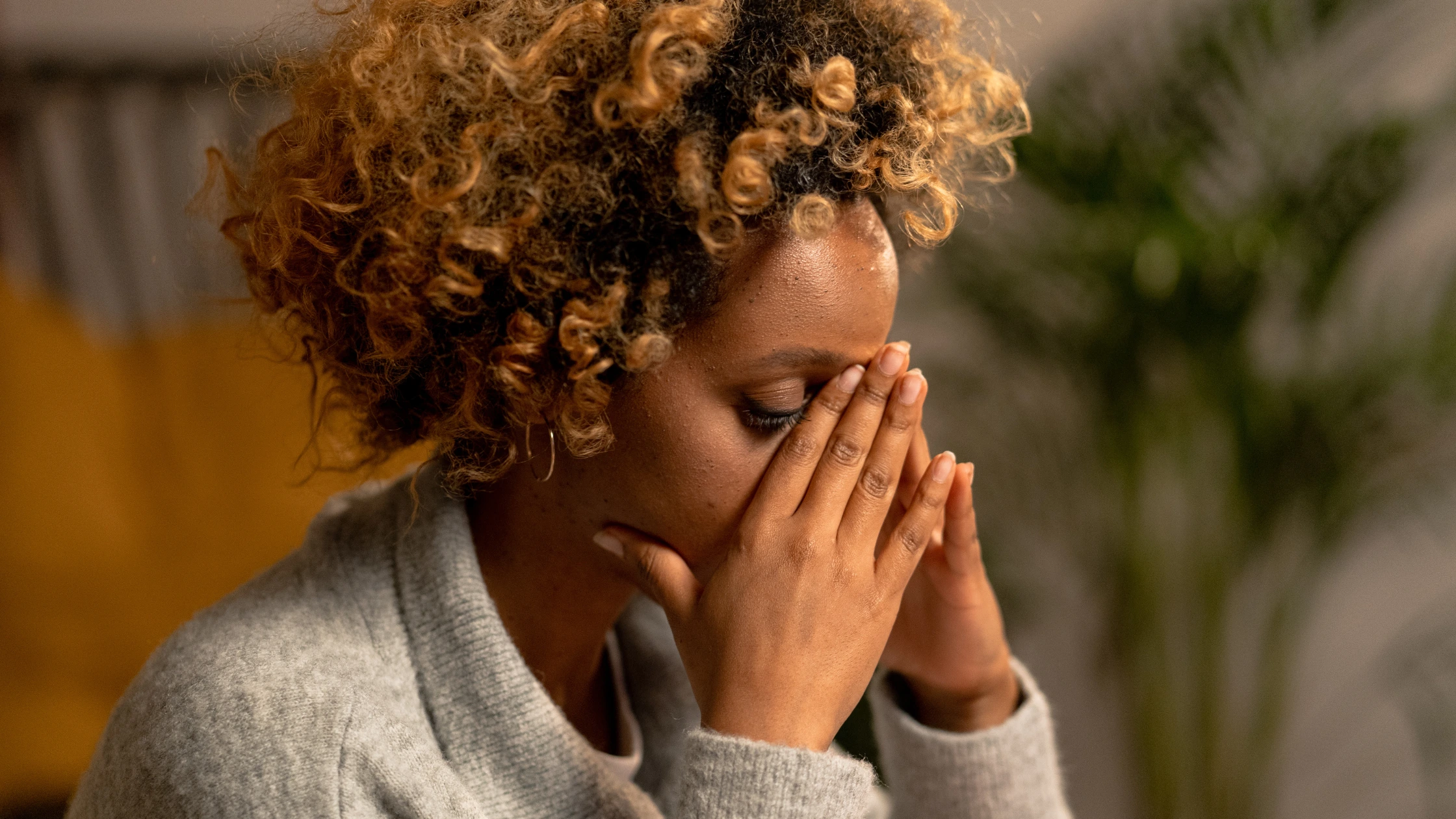Understanding the Root Causes of Anxiety and Depression

Two of the most prevalent mental health issues that people worldwide deal with are anxiety and depression. The World Health Organization (WHO) reports that anxiety disorders are among the most common mental health diseases, and that over 280 million people suffer from depression. The underlying causes of many illnesses remain little understood despite their pervasiveness. We can more effectively address these problems and offer assistance and therapy if we can identify the biological, psychological, and environmental elements that contribute to anxiety and depression.
What signs of depression and anxiety are present?
Anxiety Symptoms
- Sweating
- Trembling
- Insomnia
- Irritability
- Difficulty concentrating
- Rapid pulse
Depression Symptoms
- Recurrent thoughts of death or suicide.
- Persistent sadness or low mood.
- Loss of interest or pleasure in activities.
- Fatigue or low energy.
- Difficulty concentrating or making decisions.
- Changes in appetite (increase or decrease).
- Sleep disturbances (insomnia or oversleeping).
- Feelings of worthlessness or excessive guilt.
- Restlessness or slowed movements.
6 Root Causes of Anxiety and Depression
1. Genetic Predisposition: A family history of anxiety or depression increases susceptibility.
2. Imbalances in Brain Chemistry: Disruptions in neurotransmitters like serotonin, dopamine, and norepinephrine.
3. Chronic Stress and Trauma: Long-term stress or exposure to traumatic events, particularly in childhood.
4. Hormonal Changes: Fluctuations in cortisol, thyroid hormones, or sex hormones during life stages such as puberty, pregnancy, or menopause.
5. Environmental Stressors: Factors such as financial instability, toxic relationships, social isolation, or exposure to violence.
6. Negative Thinking Patterns: Cognitive distortions like catastrophizing, perfectionism, or persistent self-criticism.
Exploring Treatment Options for Depression
If you have treatment-resistant depression, you may have already tried antidepressants without much success. However, it’s important not to lose hope. Finding the right medication, dosage, or combination of medicines can take time.
“There are more than two dozen safe and effective antidepressants,” says Jonathan E. Alpert, MD, PhD, chair of the American Psychiatric Association’s Council on Research and a professor of psychiatry at Montefiore Medical Center. The challenge lies in the fact that doctors cannot precisely predict how each individual will respond to a particular medication.
“Depression is influenced by various factors, including genetics and life’s stressors,” explains psychiatrist Walter Dunn, MD, PhD, a health sciences assistant clinical professor at UCLA Health. Until a deeper understanding of the disease is achieved, finding the most effective treatment remains a process of trial and error.
Seeking the Best Approach
Check that you’re taking your medicine as prescribed: Three in four people don’t take their medications the way their doctor recommends. Some skip a day occasionally or stop taking a drug when they start feeling better. But these moves can keep an antidepressant from working well, says James W. Murrough, MD, PhD, director of the Depression and Anxiety Center at Icahn School of Medicine at Mount Sinai. Talk to your doctor before you make any changes to the way you take your medication.
Give your current medicine more time: Antidepressants usually don’t start working right away. In general, it takes 6 to 8 weeks for them to reach their maximum effect, Murrough says. For some people, the process may take even longer.
Your body also needs to adjust to the medication: When you take a new antidepressant, you may have side effects, such as a dry mouth, headache, fatigue, or an upset stomach. But these symptoms often go away after a few weeks.
Change the dose of your medicine: People respond to antidepressants differently. You may need more or less of a drug than the standard amount. If you don’t feel different after 2 to 4 weeks, your doctor may increase your dose, Alpert says.
Switch to a different antidepressant: If your medicine isn’t working, your doctor may suggest changing to another medicine. This is common. Research shows that only about a third of people find relief from their depression from the first antidepressant they take.
Most antidepressants affect chemicals in the brain called neurotransmitters, such as serotonin, norepinephrine, and dopamine. Each type of antidepressant acts on these chemicals in a different way:
- SSRIs, or selective serotonin reuptake inhibitors. Due to their lower likelihood of adverse effects, they are frequently the first antidepressants recommended. These consist of sertraline (Zoloft), fluoxetine (Prozac), paroxetine (Paxil), citalopram (Celexa), and escitalopram (Lexapro).
- Reuptake inhibitors of serotonin and norepinephrine (SNRIs). SNRIs include venlafaxine (Effexor XR), levomilnacipran (Fetzima), duloxetine (Cymbalta), and desvenlafaxine (Pristiq).
- Tricyclic depression medications. These antidepressants are older and have more adverse effects. These consist of nortriptyline (Pamelor), doxepin, mipramine (Tofranil), and amitriptyline.
- Atypical depression medications. These medications do not fit into any of the other major groups. Bupropion (Wellbutrin SR), mirtazapine (Remeron), and vortioxetine (Trintellix) are a few examples.
A medication from the same or a different class can be recommended by your doctor. The research shows that if you don’t respond to one SSRI, another one may work,” Dunn explains.
In addition to the medication you are currently taking, your doctor might wish to prescribe augmentation. “If you’re feeling better and your symptoms have improved 30% to 50%, we’ll try adding something on top of that to make up the difference,” Dunn explains.
Ketamine is one medication that can be taken with an antidepressant. In order to provide you with quick relief from depression that is resistant to treatment, your doctor might recommend it. It will be administered to you by IV in little amounts. A nasal spray form has received FDA approval.
Other medications, including as mood stabilizers, thyroid hormones, antipsychotics, and anxiety medications, may also be prescribed by your doctor.
Think about testing for pharmacogenetics. Scientists examine a sample of your blood or saliva during these procedures. They look for genes in your DNA that regulate particular enzymes or cell receptors. The majority of these tests examine how your body breaks down or metabolizes medications. According to Dunn, you might require a larger dosage of an antidepressant if you metabolize medications too quickly. However, if a medication takes longer for your body to process, it may accumulate and result in adverse consequences.
How to Prevent Anxiety and Depression
Prevention is always better than cure, and when it comes to mental health, this saying holds true. Here are some proven strategies to reduce the risk of developing anxiety and depression:
1. Build Strong Social Connections
-
Joining clubs, volunteering, or participating in group activities can create a sense of belonging and alleviate feelings of loneliness.
- Humans are social beings, and having a strong support system can significantly reduce the risk of mental health issues. Make time to nurture relationships with family, friends, and community members.
2. Maintain a Healthy Lifestyle
- Regular exercise is one of the best tools for preventing anxiety and depression. Physical activity boosts endorphin levels, which act as natural mood elevators.
- Eating a balanced diet rich in whole foods, fruits, vegetables, lean protein, and omega-3 fatty acids can positively impact brain health.
3. Manage Stress Effectively
- Chronic stress is a significant contributor to anxiety and depression. Practice stress-management techniques such as mindfulness meditation, yoga, or deep breathing exercises.
- Break tasks into smaller, manageable steps to avoid feeling overwhelmed.
- Learn to say no when commitments become too demanding.
4. Limit Exposure to Triggers
- Pay attention to warning signs such as persistent sadness, irritability, or restlessness. Early intervention can prevent symptoms from escalating into a full-blown disorder.
- Therapy and counseling are highly effective in identifying and addressing early symptoms of anxiety.
How to Stay Away From the Doctor’s Office
Preventive care and self-management are key to avoiding frequent visits to the doctor for anxiety and depression. Here’s how to take control of your mental health:
- Adopt a Proactive Approach: Regularly monitor your emotional well-being by journaling your thoughts and feelings. and reflect on your daily habits and identify areas for improvement.
- Practice Self-Care: Self-care involves prioritizing activities that recharge and relax you. Whether it’s reading, taking a walk, or pursuing a hobby, make time for yourself. and Set boundaries to avoid burnout and unnecessary stress.
- Cultivate Resilience: Resilience helps you bounce back from setbacks. Practice positive self-talk and develop a problem-solving mindset. and Focus on what you can control rather than worrying about uncertainties.
- Leverage Technology: Mental health apps can provide resources for self-monitoring and guided meditations to help manage symptoms. and Online communities can offer support and reduce feelings of isolation.
- Stay Physically Active: Exercise not only prevents mental health issues but also provides an immediate boost in mood and energy. and Aim for at least 30 minutes of moderate activity, like walking or cycling, most days of the week.
How to Overcome Anxiety and Depression
For individuals already experiencing anxiety or depression, recovery is possible with the right approach. Here are strategies to overcome these challenges:
-
Understand Your Condition
-
Education is the first step to overcoming anxiety and depression. Understand that these are medical conditions, not personal weaknesses.
-
Learn about your specific triggers and patterns of thought that perpetuate negative emotions.
-
-
Therapy and Counseling
-
Cognitive-behavioral therapy (CBT) is a widely recommended approach for both anxiety and depression. It helps individuals reframe negative thinking and develop healthier coping mechanisms.
-
Group therapy and support groups can provide a sense of community and shared experiences.
-
-
Mindfulness and Relaxation Techniques
-
Mindfulness encourages staying present in the moment and letting go of anxious thoughts about the past or future.
-
Progressive muscle relaxation and guided imagery can reduce physical symptoms of anxiety.
-
-
Set Realistic Goals
-
Start with small, achievable goals to rebuild confidence and motivation. Celebrate even minor accomplishments.
-
-
Challenge Negative Thoughts
-
Practice identifying and questioning irrational or unhelpful thoughts. Replace them with positive affirmations.
-
-
Build Healthy Routines
-
A structured daily schedule can create stability and predictability, reducing feelings of overwhelm.
-
Incorporate enjoyable activities into your routine to break the cycle of negative thoughts and behaviors.
-
Best Medications for Anxiety and Depression
When therapy and lifestyle changes alone are not enough, medication can be an effective tool in managing symptoms. Always consult a healthcare provider to determine the best options for your situation. Here are some commonly prescribed medications:
-
Selective Serotonin Reuptake Inhibitors (SSRIs)
These are often the first line of treatment due to their effectiveness and relatively mild side effects. Examples include:
-
Sertraline (Zoloft)
-
Fluoxetine (Prozac)
-
Citalopram (Celexa)
-
-
Serotonin and Norepinephrine Reuptake Inhibitors (SNRIs)
SNRIs target both serotonin and norepinephrine, providing relief for anxiety and depression. Examples include:
-
Venlafaxine (Effexor XR)
-
Duloxetine (Cymbalta)
-
-
Benzodiazepines
These are fast-acting medications that can be effective for short-term relief of severe anxiety. However, they carry a risk of dependence and are typically used for brief periods.
-
Tricyclic Antidepressants (TCAs)
An older class of antidepressants that may be effective when other medications fail. Examples include:
-
Amitriptyline
-
Nortriptyline (Pamelor)
-
-
Atypical Antidepressants
These medications work differently from SSRIs or SNRIs and may be prescribed for specific needs. Examples include:
-
Bupropion (Wellbutrin)
-
Mirtazapine (Remeron)
-
-
Ketamine and Esketamine
These newer treatments offer rapid relief for severe cases of depression. Esketamine (Spravato) is available as a nasal spray and is often combined with oral antidepressants.
Always follow your doctor’s guidance regarding medication use, including dosage and potential side effects. Combining medication with therapy often yields the best results.
Conclusion
Anxiety and depression are complex conditions influenced by a combination of genetic, environmental, and psychological factors. While they can be challenging to manage, understanding their root causes and adopting a proactive approach can make a significant difference in prevention and recovery. By focusing on healthy lifestyle habits, utilizing therapy, exploring medication options, and practicing self-care, individuals can regain control over their mental health. Remember, seeking help is a sign of strength, and recovery is always within reach with the right support and strategies.
